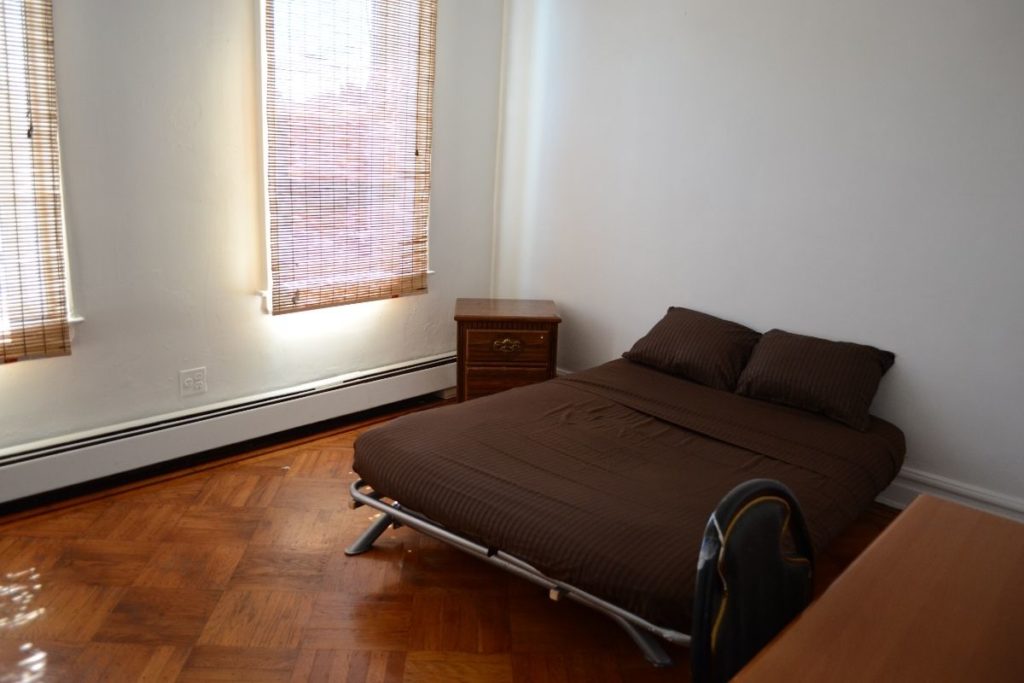Futons have grown in popularity over the years for use as both sofas and beds, but many people are wondering the same thing – are futons good for posture? Whether you primarily sit on them or sleep on them, futons will play an important part in life.
Some people choose to exclusively sleep on these pieces of furniture, while others never have and do not plan to. If you like futons, or would like to know more about them, you have come to the right place.

Here, we will be discussing the effect futons have on posture and whether they are good to sleep on or not.
Since futons are made of condensed material such as wool and cotton, they are usually quite comfortable. They are, however, firm. Normal mattresses can range from being soft to very firm, but futons are firm. It does not matter if you have a traditional Japanese futon or a Western futon, both are firm.
The firmness of futons in their secret weapon to whether they are good or bad for posture (hint: they are). This firmness is not always seen in regular mattresses, and has a number of benefits, with the primary one being that it helps align your spine properly.
What Does it Mean to Have Good Posture?
Before we dive into futons, we need to understand what is meant by good posture. Good posture is defined as your body being properly aligned when you are sitting, standing and sleeping.
Many people forget that sleeping posture is also highly important for your body and only focus on sitting and standing.
To practice good posture, you need to train yourself against gravity to properly hold your body, so that there is as little tension and strain on your ligaments, muscles, and other supportive structures.
By having good posture, you will be able to work efficiently, and with less strain and fatigue on your body’s supportive structures. An important part of keeping good posture while standing in daily life is to do things such as:
- Stand up straight
- Keep most of your weight on the balls of your feet
- Make sure that you keep your shoulders back
- Ensure that your head is level
What Bad Posture Does to You
The effects of bad posture is no laughing matter – consistently bad posture can lead to back and joint pain, reduced circulation, muscle tension and even breathing problems in extreme cases.
You may experience complications such as spinal dysfunction, developing a potbelly and getting rounded shoulders. If you have poor posture while sitting down, such as working at a desk, you can have problems with neck strain, facial pain and issues with the muscles in your jaw.
Tension headaches caused from tight muscles in your neck are also common issues experiences when bad posture is common.
Bad Sleeping Posture
If you sleep in positions that are not good for posture, you can also experience a number of uncomfortable symptoms. You may experience back and neck pain to a severe degree in some spelling positions.
The worst sleeping position for posture is on your stomach, as your spine and neck are not aligned or supported properly. All sleeping positions have advantages and disadvantages, however.
The most common disadvantage is that your body will not be aligned properly, but others include bad circulation, acid reflux, snoring, heart burn, numbness and nerve damage.
Bad sleeping positions are often made worse by sleeping on a mattress that is too soft. If a mattress is too soft, it does not support you, which will result in your body not being aligned.
Do Futons Help With Posture?

Now, to the age-old question – do futons help with posture? In short, the answer is yes. They do help with sleeping (and sitting) posture, but might not always be suitable for everyone for a number of reasons.
A factor for this argument revolves around the mattress thickness – while you do get some futon mattresses that are thicker, they are still very firm. Some people may not do well on firm mattresses, or may prefer other types of mattresses, such as those filled with air or water.
Sleeping on Futons
Research has proven that sleeping on a futon can gradually decrease back pain. This is because futons are firm, and have uneven surfaces. The firmness offer the support that the back needs to stay aligned no matter which position you prefer to sleep in.
Because of how firm futons are, they are often not ideal for those who prefer to sleep on their sides. However, you are able to get futons with thicker mattresses that offer more cushioning. Futons also are not the best option for older individuals.
This is because older people usually suffer from various aches and pains, so softer mattresses are better choices for them.
Sitting on Futons
Futons are also great choices for seating and can be used daily without issue. As mentioned before, their firmness is good for posture, and the uneven surfaces allow you to be comfortable for long periods of time.
Japanese Futons
Much like Western futons, Japanese futons are also very good for your back. They are ideal for sleeping on your back and align your body well. Not only are Japanese futons excellent for your back, but they take up very little space, are easy to clean and can be put away when not in use easily.
Final Thoughts On Futons And Posture
Futons are great choices if you have problems with posture in your sleep. You can use them daily and over time they should alleviate back pain.
It is not uncommon for people who are not used to futons to experience low levels of back or general discomfort when they start using a futon as their bodies are not used to them, but after a short time their bodies will adapt, and they should begin to see and feel the benefits of sleeping on a futon.
The primary benefit of sleeping on futons is aimed at the back and the neck, but by using the incorrect pillows or sleeping in positions that can do damage to you, you can undo all the benefits of the futon.
Futons are generally inexpensive pieces of furniture and will not in with any aesthetic, so it opens a lot of doors. Whether you are thinking about getting one for your posture, the price or the look, futons are a great choice for you.
